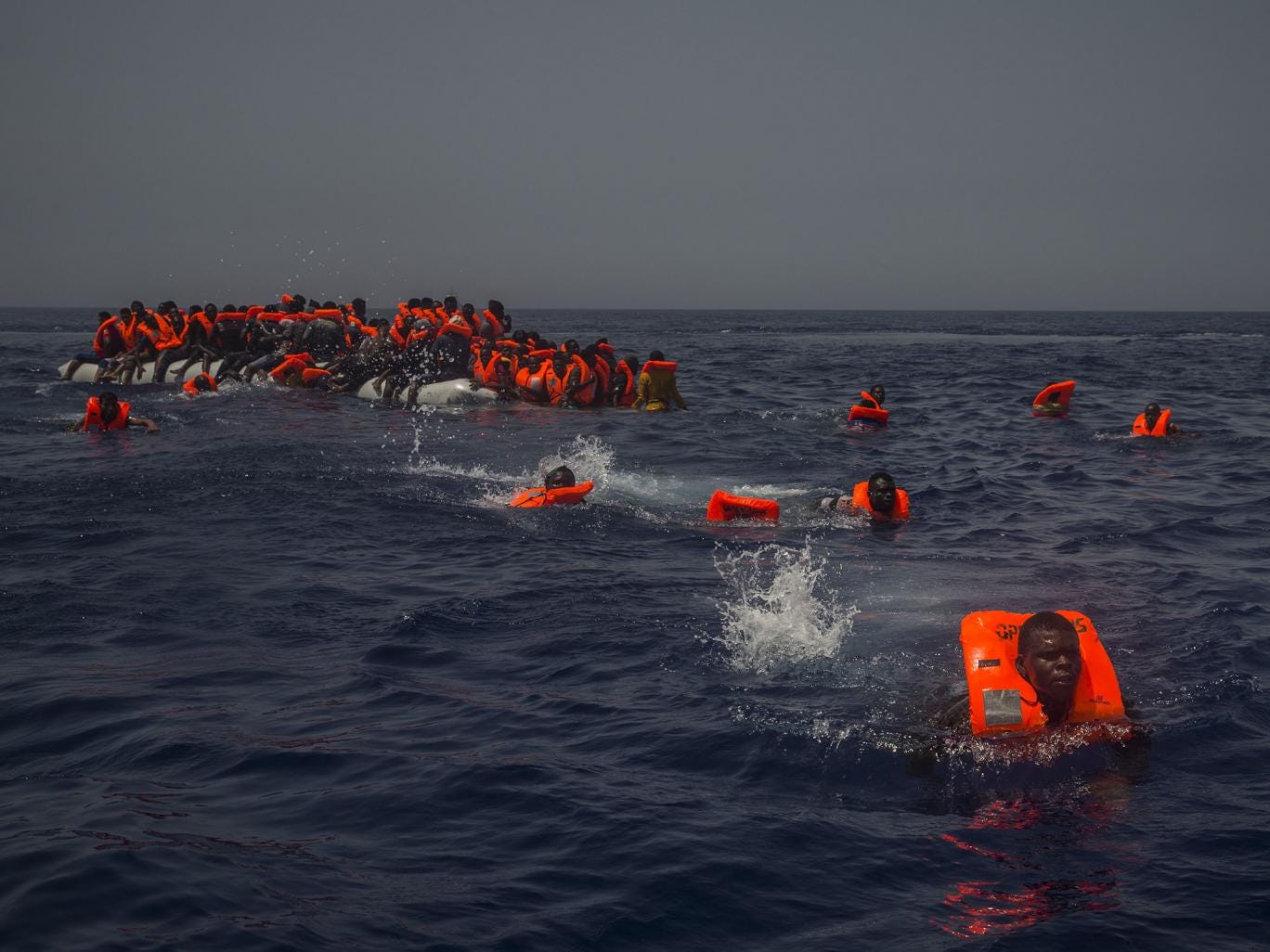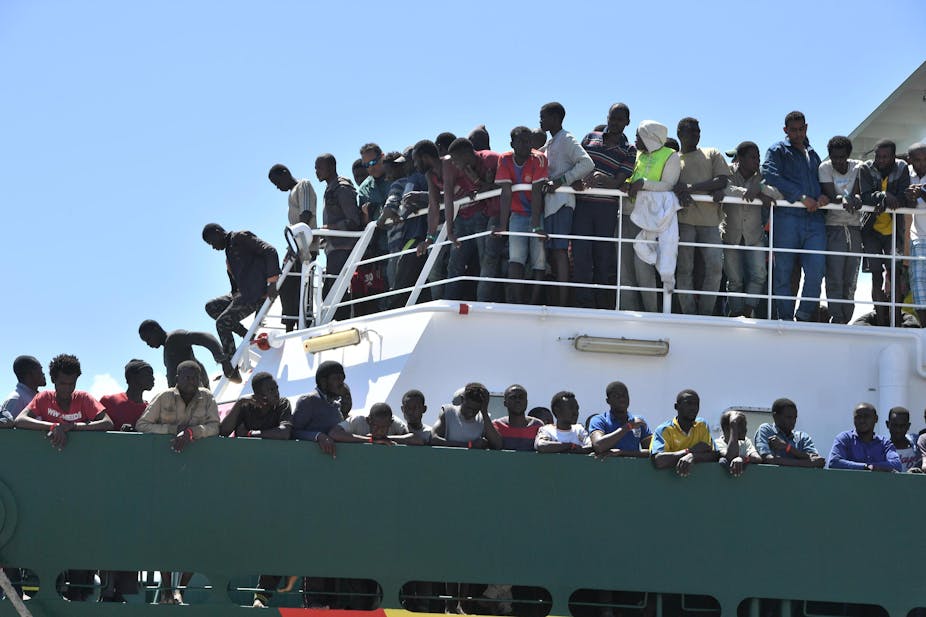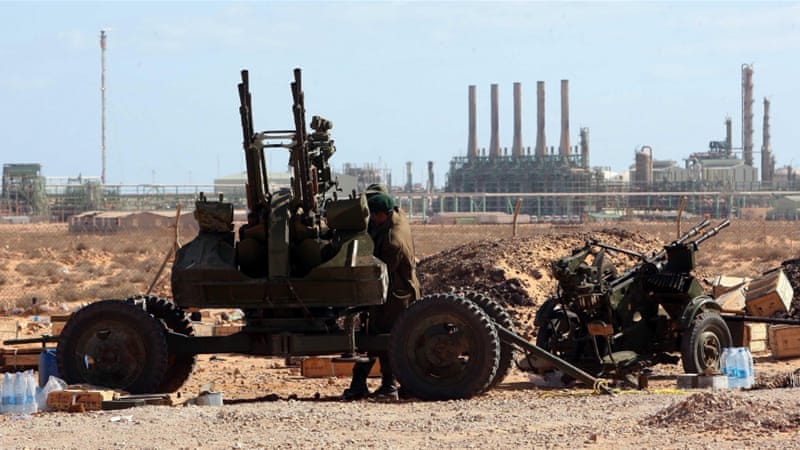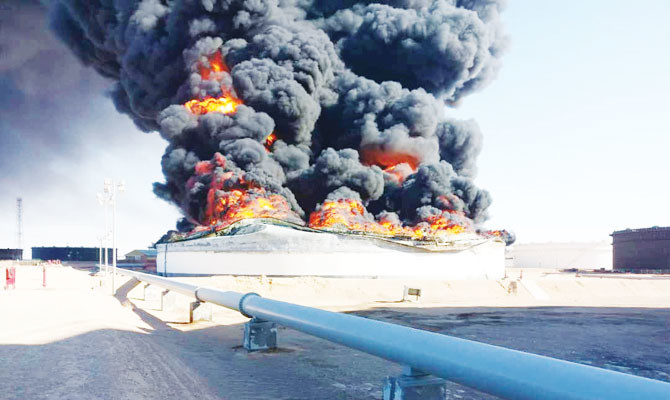Libya's Haftar launches offensive to seize eastern city from 'terrorists'
http://www.france24.com/en/20180508...offensive-seize-eastern-city-derna-terrorists

AFP | Soldiers from the self-styled army of Libyan Strongman Khalifa Haftar take part in a military parade in the eastern city of Benghazi on May 7, 2018.
Libyan strongman Khalifa Haftar on Monday announced a military offensive to take from "terrorists" the city of Derna, the only part of the country's east outside the control of his forces.
"The zero hour has struck for the liberation of Derna," said Haftar, declaring his troops had already started to crush the "bastions of terrorists" in the city.
Dressed in uniform, he was speaking from a military parade in the city of Benghazi in which thousands of soldiers from his self-styled army demonstrated their might.
Marshal Haftar celebrated the fourth anniversary since launching his "anti-terrorist" operation, which saw jihadists driven out of Benghazi -- the home of Libya's 2011 revolution.
It was his second public appearance after he returned to Benghazi two weeks ago following a long stay abroad, during which he was hospitalised in Paris.
Haftar said he had instructed his troops to spare the 150,000 residents of Derna, who have been under the control of the pro-Al-Qaeda Mujahedeen Shura Council.
He said
It also fights Haftar's forces which have besieged the city for months.
While Haftar rules over eastern Libya, the rival Government of National Accord sits in the capital Tripoli and has the backing of the broader international community.
Haftar is accused by his rivals of wanting to establish a new military dictatorship in Libya.
Derna was known for being a bastion for jihadists even before the 2011 uprising that toppled and killed longtime dictator Moamer Kadhafi.
The city is the only part of eastern Libya to remain out of the control of Haftar's Libyan National Army, which has the backing of Egypt and the United Arab Emirates.
In May 2017, Egypt carried out cross-border air strikes against militants in Derna in retaliation for a deadly attack on Coptic Christians.
(AFP)
http://www.france24.com/en/20180508...offensive-seize-eastern-city-derna-terrorists

AFP | Soldiers from the self-styled army of Libyan Strongman Khalifa Haftar take part in a military parade in the eastern city of Benghazi on May 7, 2018.
Libyan strongman Khalifa Haftar on Monday announced a military offensive to take from "terrorists" the city of Derna, the only part of the country's east outside the control of his forces.
"The zero hour has struck for the liberation of Derna," said Haftar, declaring his troops had already started to crush the "bastions of terrorists" in the city.
Dressed in uniform, he was speaking from a military parade in the city of Benghazi in which thousands of soldiers from his self-styled army demonstrated their might.
Marshal Haftar celebrated the fourth anniversary since launching his "anti-terrorist" operation, which saw jihadists driven out of Benghazi -- the home of Libya's 2011 revolution.
It was his second public appearance after he returned to Benghazi two weeks ago following a long stay abroad, during which he was hospitalised in Paris.
Haftar said he had instructed his troops to spare the 150,000 residents of Derna, who have been under the control of the pro-Al-Qaeda Mujahedeen Shura Council.
He said
The coalition of Islamist militias was formed to drive the Islamic State group from the city in 2015, after IS's takeover of Derna the previous year."peace efforts" aimed at avoiding clashes in Derna over the past three years had reached a "stalemate".
It also fights Haftar's forces which have besieged the city for months.
While Haftar rules over eastern Libya, the rival Government of National Accord sits in the capital Tripoli and has the backing of the broader international community.
Haftar is accused by his rivals of wanting to establish a new military dictatorship in Libya.
Derna was known for being a bastion for jihadists even before the 2011 uprising that toppled and killed longtime dictator Moamer Kadhafi.
The city is the only part of eastern Libya to remain out of the control of Haftar's Libyan National Army, which has the backing of Egypt and the United Arab Emirates.
In May 2017, Egypt carried out cross-border air strikes against militants in Derna in retaliation for a deadly attack on Coptic Christians.
(AFP)








